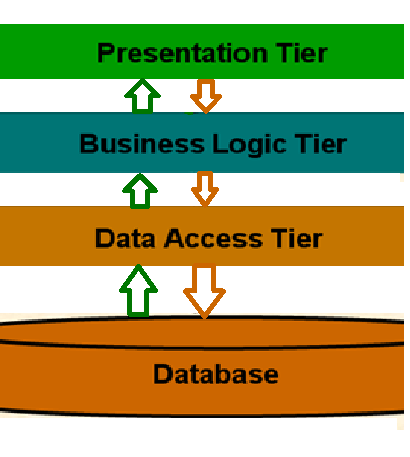C# Example of Interface
Example of Interface in C# Language:
Define Interface:
using System.Collections.Generic;
using System.Linq;
using System.Text;
namespace InterfaceApplication
{
public interface ITransactions
{
// interface
members
void
showTransaction();
double getAmount();
}
public class Transaction
: ITransactions
{
private string
tCode;
private string
date;
private double
amount;
public Transaction()
{
tCode = "
";
date = "
";
amount = 0.0;
}
public Transaction(string
c, string d, double a)
{
tCode = c;
date = d;
amount = a;
}
public double
getAmount()
{
return amount;
}
public void
showTransaction()
{
Console.WriteLine("Transaction:
{0}", tCode);
Console.WriteLine("Date:
{0}", date);
Console.WriteLine("Amount:
{0}", getAmount());
}
}
class Tester
{
static void Main(string[]
args)
{
Transaction
t1 = new Transaction("001", "8/10/2012", 78900.00);
Transaction
t2 = new Transaction("002", "9/10/2012", 451900.00);
t1.showTransaction();
t2.showTransaction();
Console.ReadKey();
}
}
}
Result when use this Interface:
When This code is compiled and executed, it
produces the following result:
Transaction:
001
Date:
8/10/2012
Amount:
78900
Transaction:
002
Date:
9/10/2012
Amount:
451900
DIFFERENCE BETWEEN AN ABSTRACT CLASS AND AN INTERFACE IN C#:
An Abstract class doesn't provide full abstraction but an
interface does provide full abstraction; i.e. both a declaration and a
definition is given in an abstract class but not so in an interface.
Using Abstract we cannot achieve multiple inheritances but
using an Interface we can achieve multiple inheritances.
We cannot declare a member field in an Interface.
We cannot use any access modifier i.e. public, private, protected,
internal etc. because within an interface by default everything is public.
An Interface member cannot be defined using the keyword
static, virtual, abstract or sealed.




Comments
Post a Comment